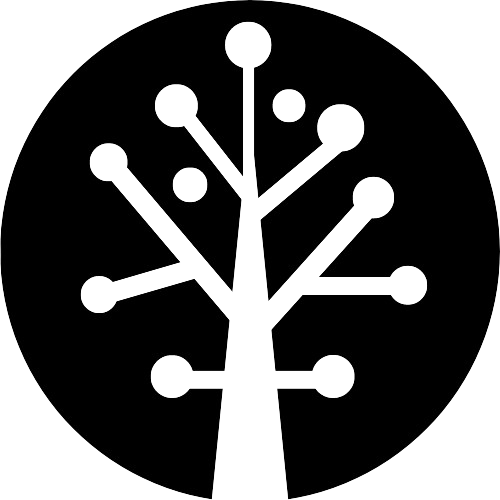What makes us valuable?
Hey friends! This is a clip from a conversation I had today with Fis Fraga, on the Saturday Idea Labs over on Twitch. I can’t think of anything to add to it at this moment, I’m still just reflecting on what all of this means.
Imagine a scenario where independent AGI never happens, but where our intelligence is no longer unique or impressive? Where do we all fit?
Aaron Lawson: Here's what I would encourage you with: if you're trying to think of what to build your framework to be able to do, Artificial Intelligence is right now as stupid as it's ever going to be.
It's at its stupidest moment today. So, we talked about this idea: if I want to ask (an AI persona of) Barack Obama about a situation and have him apply a mental model, it may not work today. It may hallucinate and just merge and blur into a bunch of word salad.
This image was generated by Chat-GPT, upon its reflections over the full text of this interview.
But a year from now, I would be shocked if it wasn't better in exact, tangible ways, somehow grounding on what it knows about him—all his speeches, all his content out there—and then taking what it knows of that mental model you ask about, and then taking your question and running those three things through each other to come back to you with something that is not just plagiarized, but gives you an interesting thought you hadn't had yet.
Yes, I would be shocked if that doesn't happen. If you build the prompt now and it doesn't work, just save it because by the time they get to version 5 or 6 (of Chat-GPT), I bet it's going to work.
This image was generated by Chat-GPT, upon its reflections over the full text of this interview.
Fis Fraga: Exactly. And you touched on a very interesting direction, which is the level of intelligence, right? This model you're interacting with is only getting smarter. Indeed, there's no going back.
It's impossible for AI to become more stupid in the long term. It's not going to happen. It's always going to get more and more intelligent. I have a friend here who speaks and is deeply studying AI.
He says that intelligence will become a commodity. Intelligence is not going to be a big deal. And it's already less of a big deal day by day because the models will represent that intelligence, create analysis, give perspectives, and explanations. They will start to do this better than we do.
This image was generated by Chat-GPT, upon its reflections over the full text of this interview.
Aaron Lawson: Sorry to interrupt, but a lot of people are going to find that threatening. How do we take that reality—that intelligence is now a commodity—and tell people they don't have to be frightened? I talked about this with my dad and other people. I used to be an electrician. Craftsmanship, like woodworking, used to be about how fast you could do it with your hammer.
Now they have air hammer tools that do it 80% as good and ten times as fast. Your craftsmanship doesn't matter to customers anymore. That extra 20% doesn't matter compared to the 10x production. This is happening in knowledge work and thinking. How do we help people not completely freak out? What about them is still valuable if intelligence is commoditized and no longer a craft?
This image was generated by Chat-GPT, upon its reflections over the full text of this interview.
Fis Fraga: That's so true. It goes back to how we see ourselves and what we value ourselves for. I remember hearing a phrase that changed my life: “If I value myself for what I know and I'm in a room full of brilliant people, I'll over-focus on what I know or don't know, instead of absorbing.” I like to be the stupidest person in the room because then I can learn from others who know more.
This image was generated by Chat-GPT, upon its reflections over the full text of this interview.
Fis Fraga: We need to understand that we are still valuable. We have to stop picturing intelligence as the reason for our value and see that we have many other qualities and skills. This will bring up hidden strengths and aspects of our human condition that we've been trained to suppress.
We're not going to rely on intelligence alone. We need to think about our intuition and empathy, seeing connections between different areas and people. Our value proposition for being human will change.
It doesn't have to be frightening if we see that we're still useful, not just for our intelligence.
This image was generated by Chat-GPT, upon its reflections over the full text of this interview.
Aaron Lawson: That idea has to be chapter one of the book. People need to hear this to understand anything else. The technical aspects won't be listened to by people who feel threatened.
You talked about abundance earlier. A scarcity model of reality might disappear in large areas. If we're set up to see scarcity as good and think we don't have value without it.
Fis Fraga: It's not sustainable. What if AI is part of the change and an agent in shaping human evolution? It could be a spiritual evolution.
Humans are going through a spiritual awakening and a different way of seeing reality.
AI is undeniably playing a part in that. Everything's connected. You can't look at one thing without the other.
Questions for reflection:
#1 - What is it about other people in my life that I value in them, that has nothing to do with their intelligence or ability?
#2 - What might someone else say about me if asked this same question?
If you’d like to catch more of today’s Saturday Lab:
Clips:
https://www.twitch.tv/collections/yMZprL3W0hd8gQ
Full Interview with Fis Fraga:
https://www.twitch.tv/videos/2155208662?collection=3bdLnLbW0hc1PA








